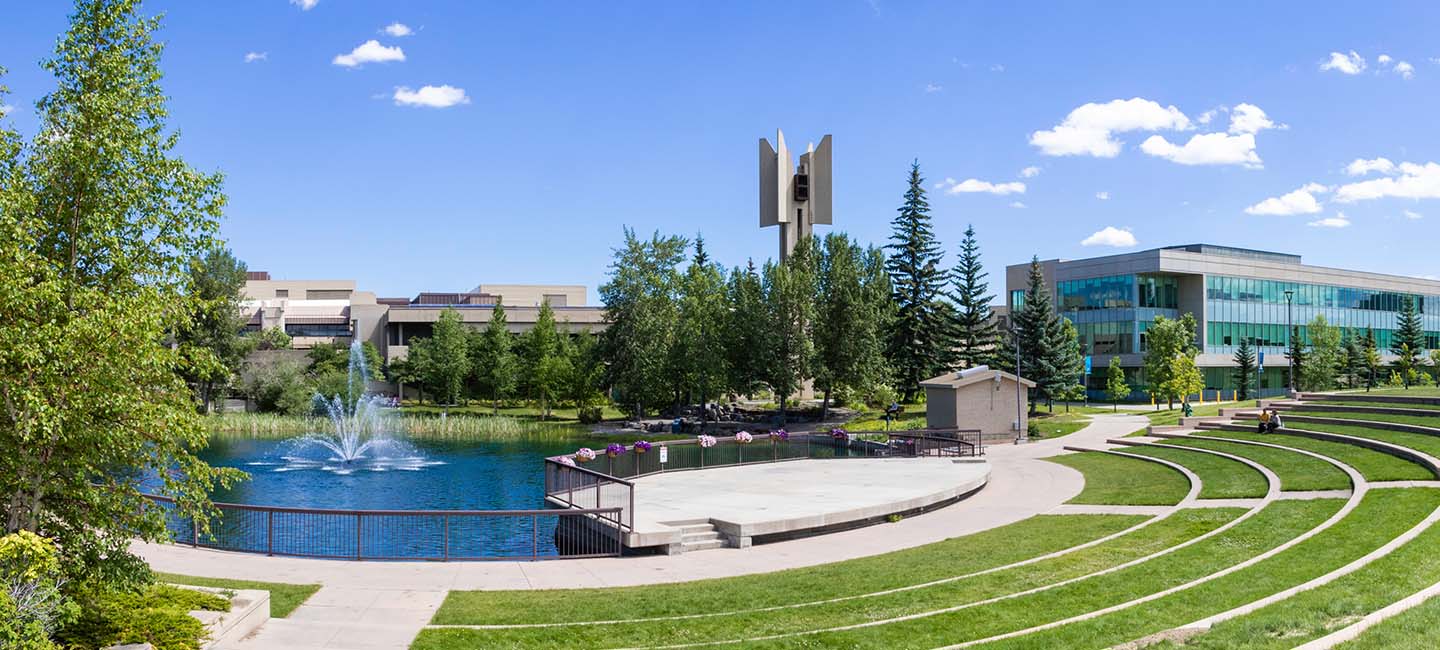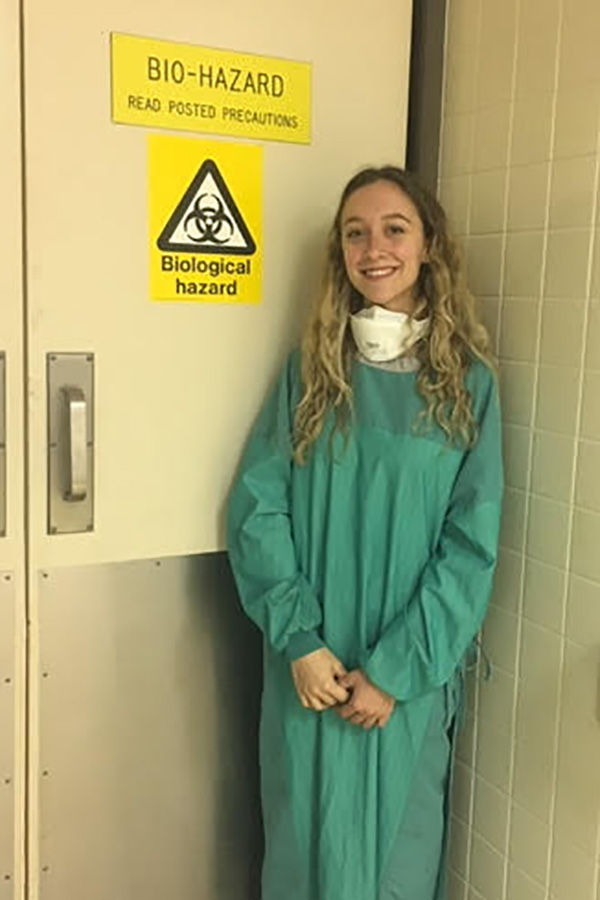
Bachelor of Arts — Criminal Justice (BA—CJ)
Why study criminal justice?
Alberta’s only four-year criminal justice degree with hands-on experience and career-ready skills.
Explore criminological theory, law enforcement, community outreach and victim services with MRU's Bachelor of Arts — Criminal Justice. With a mix of academic study and hands-on learning, you'll build a strong foundation for justice system careers or graduate studies. Gain valuable work experience through practicum opportunities and dive deeper into your interests with our supportive honours stream.
Program highlights
- Earn credit while gaining 280+ hours of field experience in a justice-related agency
- Pursue advanced research through the honours stream in your final years
- Study topics like victim services, forensic interviewing, Indigenous justice and trauma-informed practice
- Broaden your worldview through immersive study abroad or justice-focused field school opportunities
Career possibilities
What jobs can I get with a criminal justice degree?
Graduates of MRU’s criminal justice degree gain the skills and confidence needed for diverse justice system careers. Potential pathways include:
* additional education, experience and/or training required
For me, the best part was finding an answer to what happened to this person so we can bring closure to their families.
— MRU alum, Chloe Gabriele
Bachelor of Arts — Criminal Justice (2020)
Compled her practicum with the Office of the Chief Medical Examiner
Curriculum and courses
What courses will I take in the criminal justice program?
Study criminal justice with a program that blends law enforcement studies, victim services training and community outreach — preparing you for a meaningful career.
Explore full curriculum and coursesYear 1
|Years 2-4
Curriculum snapshot — Year 1

Experiential learning
Apply what you’ve learned in class to your capstone practicum placement during your fourth year. You’ll gain hundreds of hours of hands-on experience in a justice related agency and start building your resume before you graduate.
- Gain experience with a 6-credit capstone practicum and over 280 hours of hands-on work placement
- Work with agencies like the RCMP, Calgary Probation or Correctional Service Canada
- Pursue innovative research and expertise through the honours stream
- Broaden your perspective through immersive study abroad and field school experiences
Admission requirements
When you apply to MRU, you’ll need to meet both general admission requirements and any additional criteria specific to your chosen program. Requirements can vary, so it’s important to review what’s needed for your area of interest.
Select your admission category:
High school
Post-secondary transfer
Mature student
Admission category: High school
High school applicants must submit five Grade 12 courses for admission. These five courses must include the required subjects for the program you’re applying to. These required subjects are part of Group A.
To complete your five courses, additional subjects may be used from Group A, B, or C.
More admissions info for high school applicantsWhat are the requirements for the Bachelor of Arts — Criminal Justice?
- English Language Arts 30-1 - 60%
- Mathematics 30-1 or 30-2 - 60%
Applying from another province or country?
If you're applying from outside Alberta, you'll need to know which of your courses match Alberta Grade 12 courses.
Check out our provincial equivalencies chart if you're from another Canadian province or the international credentials chart if you're applying from outside Canada.
If English is not your first language, you’ll need to meet two separate English requirements to be admitted to Mount Royal:
- You’ll need to successfully complete an English course if it’s part of your program’s admission requirements
- Show that you meet Mount Royal’s English Language Proficiency (ELP) requirements
Admission deadlines
Fall 2026 intake
Early admission
Oct. 1, 2025 - Feb. 1, 2026
Ongoing admission based on program space and availability
Feb. 2, 2026 until program is full
What is early admission?
During the early admission period, all applications are treated as though they were received at the exact same time. This means all competitively qualified applicants will be accommodated. At MRU, we actually receive most of our applications and fill many of our programs from applications submitted during early admission. It is an ideal time to apply and helps expedite the process so you hear back earlier too.
Early admission deadlines
Fall Semester:
Early admission is open from Oct. 1 to Feb 1.
Winter Semester:
Early admission is open from Oct. 1 to Nov. 1.
Costs
We know your investment in post-secondary education is a big deal. Make sure you’re on the right financial track by reviewing the costs, scholarships and financial support available.
How much does the Bachelor of Arts — Criminal Justice cost?
The cost of your studies depends on a few things, like the program you choose and whether you’ll live at home or in Residence.
To get a better idea of what you might spend, try using our first-year student budget estimator. It gives a detailed breakdown of estimated costs.
You can also visit our tuition and costs page for full details on tuition and fees for a full year.
Does MRU offer scholarships or financial aid?
At Mount Royal, we want you to focus on your education, not worry about how to pay for it. There are many ways to help cover the cost of your studies.
Scholarships and bursaries
Mount Royal gives out over $5 million each year in scholarships and bursaries! These awards look at things like your grades, financial need and your involvement in school or the community.
Financial aid
There are financial aid options from the provincial and federal governments for both full-time and part-time students. These include student loans, grants and bursaries.
Other resources
You can also explore other ways to pay, like using RESPs (Registered Education Savings Plans) or CPP (Canada Pension Plan) benefits.
How do I apply for scholarships and bursaries?
To be eligible for scholarships and bursaries, you must apply for Early Admission from Oct. 1 to Feb. 1. You can apply for scholarships and bursaries from Nov. 1 to March 1.
Have questions?
Our info sessions are a great way to explore MRU programs, learn how to apply and connect with people who are here to help.
Book an info sessionConnect with the Admissions and Recruitment Office for more one-on-one support.
Contact us
Why MRU
At MRU, learning is about more than lectures and textbooks. It’s about evolving through experience. With small class sizes, supportive faculty and hands-on opportunities, students are encouraged to think critically, push boundaries and uncover what they’re capable of. MRU helps students build the skills, confidence and curiosity to shape meaningful futures in Calgary and beyond.
Discover why MRULearn about the additional supports and services we have available specifically for:
International students Indigenous studentsFaculty of Arts
Mount Royal offers three bachelor's degrees out of the Faculty of Arts: The Bachelor of Interior Design, Bachelor of Arts — Criminal Justice and the Bachelor of Arts with majors in Anthropology, English, History, Policy Studies, Psychology and Sociology.
Virtual information sessions
Select a session that suits you. Choose from general information, specific by program, drop in Q&A, or attend an Indigenous or international student session.
Sign-up

